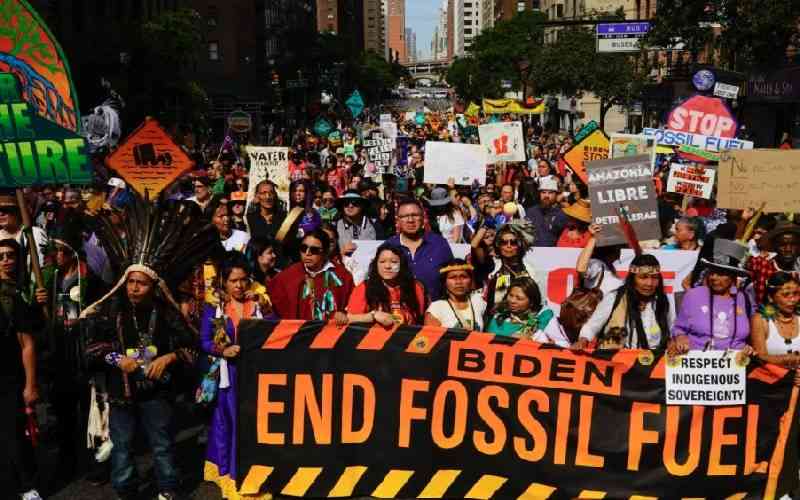×
The Standard e-Paper
Smart Minds Choose Us

Thousands of protesters marched through New York City Sunday demanding that President Joe Biden and other world leaders at the United Nations General Assembly end the use of fossil fuels.
As climate change has become more urgent and polarizing, the scientists researching it and the journalists who report on it find themselves harassed.